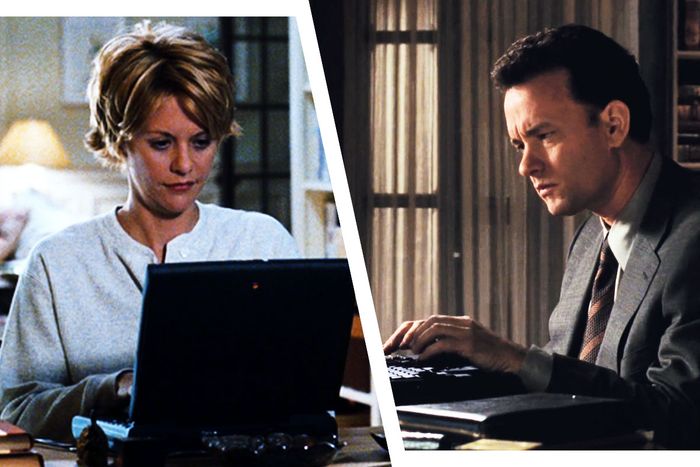
In the early days of the coronavirus pandemic ÔÇö which is to say three weeks ago ÔÇö I started sending out emails that all opened with roughly the same line. Hi. Hope you are doing as well as one can be amidst [gestures at state of the world.] Only then would I begin to ask about the thing I actually wanted. If you received such an email and chuckled even a little bit, thank you. (IÔÇÖm sorry that it wasnÔÇÖt a special-just-for-you line and that you have to find out this way.) It signaled, I hope, that I wasnÔÇÖt a heartless bitch out of touch with the fact that a merciless virus is killing people around the world and here I am sending emails about movies and memes and could your client do a 20-minute phone interview?
The wording has tightened since then, culled to just a ÔÇ£Hope youÔÇÖre well!ÔÇØ or, in the case of email chains, a quick ÔÇ£Stay safe!ÔÇØ tossed in before my signature, which includes the cell phone number IÔÇÖm hoping youÔÇÖll call so I can ask you my questions and youÔÇÖll tell me what I need to hear so I can continue doing my job. How ghoulish. Hope youÔÇÖre well! How could anybody possibly be ÔÇ£wellÔÇØ right now? Setting aside whether youÔÇÖre actually infected, the likelihood of your knowing somebody who is increases daily. Maybe thereÔÇÖs someone you care about who is working a high-risk essential job. Stay safe! As if you have much control over that. Last weekend, I got an email from my landlordÔÇÖs son-in-law that my landlord had died of ÔÇ£COVID complications.ÔÇØ I had planned to email him Monday to settle some minor lease issues. Everything I try to type in response feels transactional and hollow.
Communication, though, is always about transaction. IÔÇÖm reminded of this when I email a favorite college professor, Bonnie Urciuoli, who teaches linguistic anthropology. A lesson from an early day in her introductory course surfaces in my mind, one where we were learning about speech acts and the ways in which what we say doesnÔÇÖt always mean what weÔÇÖre saying. ÔÇ£ItÔÇÖs so hot in here,ÔÇØ Urciuoli said, asking us to explain what she meant. It could be, sure, a literal commentary on the temperature. But it could also mean, ÔÇ£Go open that window for me,ÔÇØ an indirect request. This, weÔÇÖd later learn, is what philosopher J.L. Austin would categorize as a perlocutionary act, an instance where your speech is judged not on its literal content but on the response it garners. Something clicked into place in my head that day, and I left the classroom with my brain buzzing in the way that brains do that when youÔÇÖre 18 and a basic discovery makes you reconsider every sentence youÔÇÖve ever uttered.
ÔÇ£When you start off an email with, ÔÇÿHope you and your family are well,ÔÇÖ itÔÇÖs not bogus,ÔÇØ Urciuoli said when I asked her about our new, seemingly obligatory catchphrases. ÔÇ£ThereÔÇÖs a long history of work correspondence using formal greetings involving quasi-personal formulae such as┬áÔÇÿDear ÔÇöÔÇö or ÔÇÿEsteemed ÔÇöÔÇöÔÇÖ along with closings like ÔÇÿsincerelyÔÇÖ or ÔÇÿcordially.ÔÇÖÔÇØ TheyÔÇÖre signposts, things that guide us through polite conversations. Writing Hi, [so-and-so]. Hope youÔÇÖre doing okay, opens up a dialogue, and it also tells the person youÔÇÖre emailing that theyÔÇÖre about to engage with a person who understands the conventions of how to interact with another person.
ItÔÇÖs all variation on form, a slightly tweaked version of the lines you were probably already using in your emails, modified for these markedly darker days.┬áUrciuoli brought up another example for me to consider: the classic, ÔÇ£Hi, how are you?ÔÇØ question when you donÔÇÖt actually give a damn about the answer. ÔÇ£If people respond by actually telling you how they are, theyÔÇÖd better keep it short unless you make it clear you want details,ÔÇØ Urciuoli said. You might call these lines small talk. Bronislaw Malinowski, often hailed as the father of modern anthropology and a man with a name I have always found very satisfying to write out in cursive, would call them ÔÇ£phatic communion.ÔÇØ ÔÇ£They signal that the channel is open and that you respect the person youÔÇÖre writing to,ÔÇØ Urciuoli explained. And also, more important, that you know how to read the room.
ÔÇ£Not everyone is equally formulaic,ÔÇØ she added. ÔÇ£Some people do want those who work with or for them or do business with them to see them as caring, even if that really is pretty fake ÔÇö think Michael of The Office.ÔÇØ And there is, of course, the very real possibility that the person youÔÇÖre emailing with does genuinely care that youÔÇÖre okay and doing well and staying sane and that youÔÇÖve got enough beans in your kitchen. But youÔÇÖre not ever really going to know that for sure. ÔÇ£I really do hope you are well,ÔÇÖ I overemphasized in my email to Urciuoli. I meant it, but I was also reaching out after months without any communication between us. My last email dates to May 2019, when a linguistics term, ÔÇ£deixis,ÔÇØ made an appearance in a final round of the Scripps National Spelling Bee. Nearly a year later, here I am in her inbox asking for help. I said I hoped she was doing okay, but itÔÇÖs not lost on me that I said it as a springboard to getting something for myself.
Unless we all agree to drop the perfunctory concern in every email, none of us can drop it. Otherwise, we run the risk of being seen as out of touch. Cruel. Cold. (Doubly so for women because, you know [gestures at state of the world.]) WeÔÇÖre all stuck adhering to coroniquette for the foreseeable future. Asking people about their wellness status so we can then ask them about other things. Be well. Stay safe. Here is what I really wanted to talk about.

